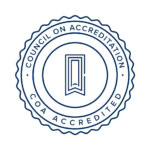Your Constitutional Rights: Protected No Matter Your Immigration Status

KNOW YOUR RIGHTS
Here at Wayside Youth & Family, we believe in equipping our staff and clients with the necessary resources and supports needed to effectively handle any challenges or situations that they may arise. Below you will find a myriad of resources in reference to your rights and how to access assistance if necessary.
Thank you!
Regardless of your immigration status, whether you are a citizen, on a visa, or undocumented you have guaranteed rights under the Constitution.
Please refer to the links below and scenarios to Learn more about your rights, and how to legally exercise them. **Please provide this important information to clients who may benefit from this information.
MASS LEGAL HELP Know Your Rights:
English: https://www.masslegalhelp.org/immigration/know-your-rights/immigrant-rights-and-law-enforcement
BE INFORMED, BE PREPARED!
What do I do if:
Reduce potential risk to yourself by:
- Staying calm. Don’t run, argue, resist, or obstruct the officer, even if you believe your rights are being violated. Keep your hands where the police can see them.
- Don’t lie about your status or provide false documents.
- You have the right to remain silent and do not have to discuss your immigration or citizenship status with police, immigration agents, or other officials. Anything you tell an officer can later be used against you in immigration court.
- If you are not a U.S. citizen and an immigration agent requests your immigration papers, you must show them if you have them with you.
- If an immigration agent asks if they can search you, you have the right to say no.
**Agents do not have the right to search you or your belongings without your consent or probable cause. - If you’re over 18, carry your papers with you at all times. If you don’t have them, tell the officer that you want to remain silent, or that you want to consult a lawyer before answering any questions.
- In some states, you must provide your name to law enforcement if you are stopped and told to identify yourself. But even if you give your name, you don’t have to answer other questions.
- If you are driving and are pulled over, the officer can require you to show your license, vehicle registration and proof of insurance, but you don’t have to answer questions about your immigration status.
- Customs officers can ask about your immigration status when entering or leaving the country. If you are a lawful permanent resident (LPR) who has maintained your status, you only have to answer questions establishing your identity and permanent residency. Refusal to answer other questions will likely cause delay, but officials may not deny you entry into the United States for failure to answer other questions. If you are a non-citizen visa holder, you may be denied entry into the U.S. if you refuse to answer officers’ questions.
Reduce potential risk to yourself by:
- Staying calm and not resisting or obstructing the agents or officers.
- Do not lie or give false documents.
- Prepare yourself and your family in case you are arrested. Memorize the phone numbers of your family and your lawyer. Make emergency plans if you have children or take medication.
- You have the right to remain silent. If you wish to exercise that right, say so out loud.
** In some states, you may be required to provide your name if asked to identify yourself. - You do not have to consent to a search of yourself or your belongings, but police may pat down your clothing if they suspect a weapon.
- Arrested by police? You have the right to a government-appointed lawyer.
- Detained by ICE? You have the right to consult with a lawyer, but the government is not required to provide one for you. You can ask for a list of free or low-cost alternatives.
- You do not have to answer questions about where you were born, whether you are a U.S. citizen, or how you entered the country. (Separate rules apply at international borders and airports, and for individuals on certain nonimmigrant visas, including tourists and business travelers.)
What to do if you are arrested or detained
- Say you wish to remain silent and ask for a lawyer immediately. Don’t give any explanations or excuses. Don’t say anything, sign anything, or make any decisions without a lawyer.
- If you have been arrested by police, you have the right to make a local phone call. The police cannot listen if you call a lawyer.
- If you have been detained by ICE, you have the right to contact your consulate or have an officer inform the consulate of your detention.
- Remember your immigration number (“A” number) and give it to your family. It will help family members locate you.
- Keep a copy of your immigration documents with someone you trust.
- If you are a non-citizen: Ask your lawyer about the effect of a criminal conviction or plea on your immigration status. Don’t discuss your immigration status with anyone but your lawyer. While you are in jail, an immigration agent may visit you. Do not answer questions or sign anything before talking to a lawyer. Read all papers fully. If you do not understand or cannot read the papers, tell the officer you need an interpreter.
If you believe your rights were violated
- Write down everything you remember, including officers’ badges and patrol car numbers, which agency the officers were from, and any other details. Get contact information for witnesses.
- If you’re injured, seek medical attention immediately and take photographs of your injuries.
- File a written complaint with the agency’s internal affairs division or civilian complaint board. In most cases, you can file a complaint anonymously if you wish.
Reduce potential risk to yourself by:
- Staying calm and keeping the door closed. Opening the door does not give them permission to come inside, but it is safer to speak to ICE through the door.
Know your rights:
- You have the right to remain silent, even if the officer has a warrant.
- You do not have to let police or immigration agents into your home unless they have certain kinds of warrants.
- If police have an arrest warrant, they are legally allowed to enter the home of the person on the warrant if they believe that person is inside. But a warrant of removal/deportation (Form I-205) does not allow officers to enter a home without consent.
What to do when the police or ICE arrive
- Ask if they are immigration agents and what they are there for.
- Ask the agent or officer to show you a badge or identification through the window or peephole.
- Ask if they have a warrant signed by a judge. If they say they do, ask them to slide it under the door or hold it up to a window so you can inspect it.
- Don’t lie or produce any false documents. Don’t sign anything without speaking with a lawyer first.
- Do not open your door unless ICE shows you a judicial search or arrest warrant naming a person in your residence and/or areas to be searched at your address. If they don’t produce a warrant, keep the door closed. State: “I do not consent to your entry.”
- If agents force their way in, do not resist. If you wish to exercise your rights, state: “I do not consent to your entry or to your search of these premises. I am exercising my right to remain silent. I wish to speak with a lawyer as soon as possible.”
- If you are on probation with a search condition, law enforcement is allowed to enter your home.
Links to additional scenarios of ICE, POLICE OR DEPORTATION ENCOUNTERS:
https://www.aclu.org/know-your-rights/immigrants-rights#police-or-ice-are-at-my-home
Contacts for assistance in reference to immigration law and support(s):
– Metrowest Legal Services at 508-620-1830 or https://mwlegal.org/legal-services/immigration/ provides free civil legal services to low income families, particularly immigration legal services, especially for minors or families who are experiencing DV, trafficking and/or sexual assault
– Greater Boston Legal Services at 617-371-1234 or https://mwlegal.org/legal-services/immigration/ provides free civil legal services to low income individuals in Boston and 31 surrounding cities and towns, including immigration services.
– Northeast Legal Aid in Lowell at 978- 458-1465 or https://www.immigrationadvocates.org/legaldirectory/organization.552506-Northeast_Legal_Aid_Inc_Lowell_Office provides free civil legal services to low income individuals and families in Northeastern Ma, including immigrations services.
– Central West Justice Center at 800-649-3718 or https://www.cwjustice.org/what-we-do/ is a subsidiary of Community Legal Aid serving Worcester country and provides free civil legal services, Central West Justice is specific to Immigration services.
National Support for Immigration Matters:
- AMERICAN CIVIL LIBERTIES UNION- Link to webpage: ACLU- KNOW YOUR RIGHTS
- CENTER FOR IMMIGRATION ASSISTANCE
The Center for Immigration Assistance (CFIA) is one of the nation’s leading resources on immigration related issues. Our team is focused on providing families with the information they need to fully understand the immigration detention and release process and the resources and information available to them. Whether you are seeking information on a specific person in ICE detention, trying to locate the nearest consulate/embassy or even looking for assistance in securing a loved one’s release from custody, CFIA is here to help.
Important links for services under CFIA:
- Find a Detainee
- Locate a Detention Facility
- Locate an ICE-ERO Facility
- Resources for Lawyers
- Contact an Embassy
- Contact a Consulate
ICE DETENTION CENTER INFORMATION
ICE Detention Facilities in Massachusetts
There are nine immigration detention facilities in Massachusetts. If you need to post an Massachusetts immigration bond, below are the facilities:
- Bristol County House of Corrections
- Plymouth County Correctional Facility
- Suffolk County House of Corrections (South Bay)
- Franklin County House of Correction
PLEASE NOTE:
Not every detention facility allows you to post an immigration bond in Massachusetts. If you would like to post an immigration bond it must be done at an ICE-ERO facility that accepts immigration bonds.
In Massachusetts there is one ICE-ERO Facility where you can post an immigration bond in person. This facility is located at the following address:
- 1000 District Avenue, Burlington, MA 01803 (781) 359-7500
If you need an easier way to post an immigration bond for someone who is detained at an immigration detention facility in Massachusetts, you can post an immigration bond through a licensed immigration bonding agent. That agent can post a bond for you electronically for any detention facility in Colorado and around the US.
Link to all ICE detention Centers by State: https://www.cfiaus.com/ice-detention-facilities/

